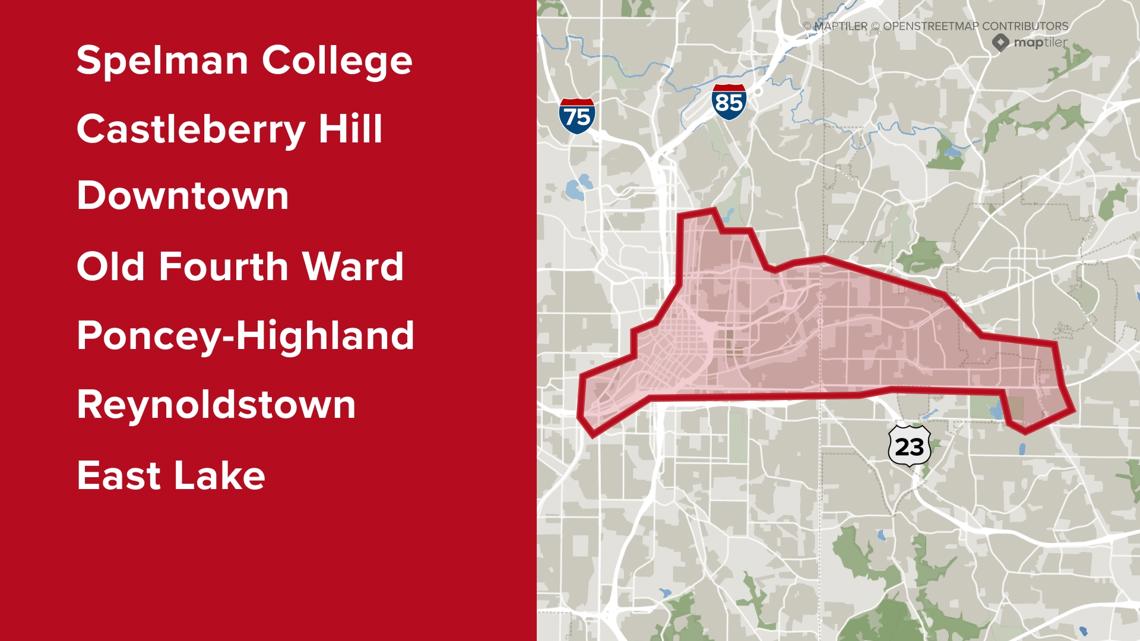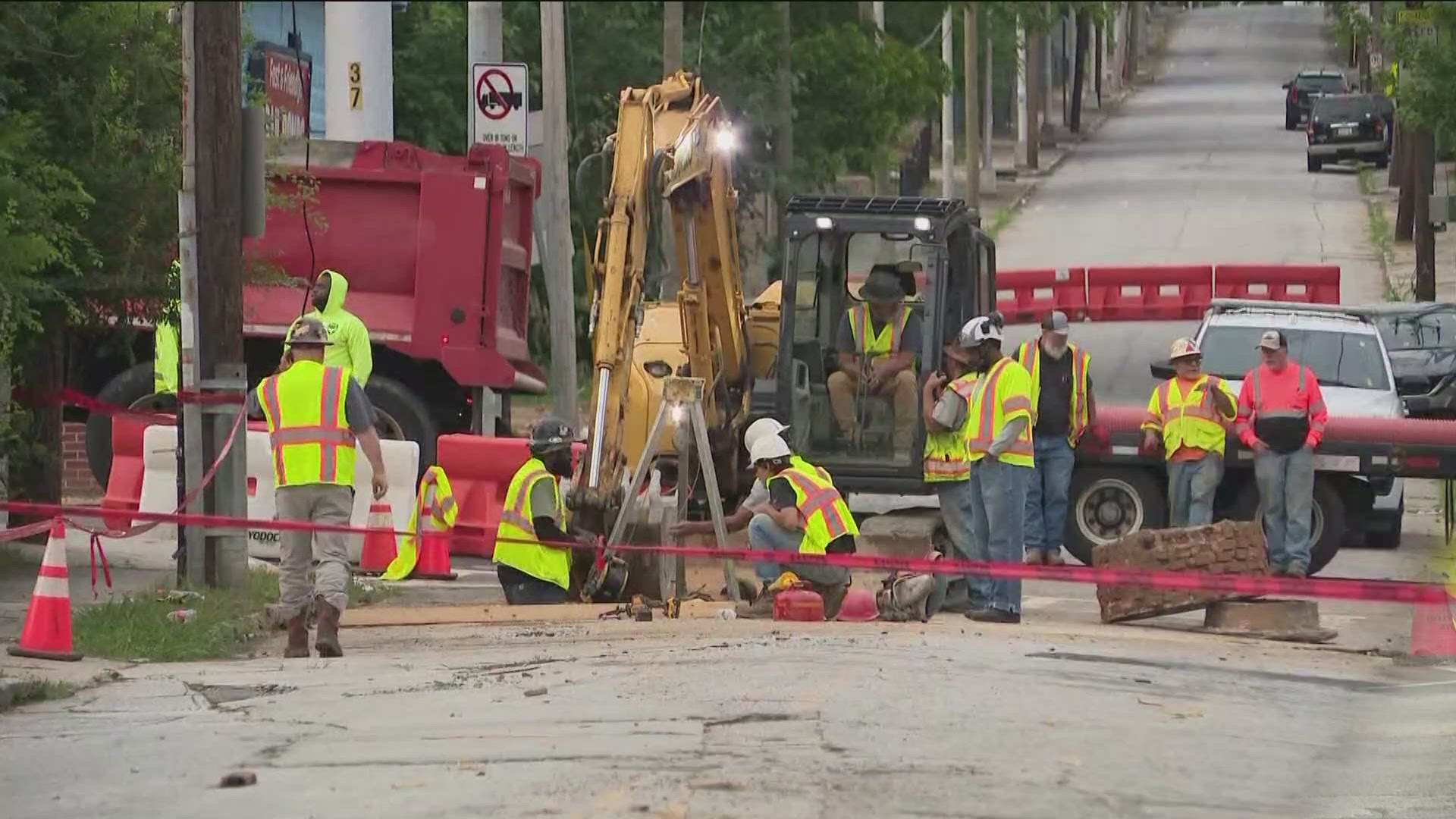ATLANTA — The City of Atlanta Watershed Management lifted a boil advisory for parts of Atlanta on Monday evening.
It comes after successful repairs to Friday's major breaks in an area where three water main lines converge near the intersection of Joseph E. Boone Boulevard NW and James P. Brawley Drive. The city has since run a test for that affected water main, which passed, allowing the city to decrease the amount of areas in the advisory.
The boil water advisory area still includes a big portion of Midtown and some neighborhoods in East Atlanta, which were left dealing with outages after a second major break in Midtown near the intersection of 11th and West Peachtree Streets.
The map below shows the areas that are still being asked to boil water as repairs to the Midtown break, and efforts to restore services, continue.
Atlanta boil water advisory map
Click here for an interactive map of the impacted area.


The Department of Watershed Management initially issued a boil water advisory Friday for a large swath of metro Atlanta after a major water main break left thousands in the city dealing with water issues.
Because of the outages and low water pressure, the city issued the advisory "out of an abundance of caution." It recommended all residents and property owners to boil all water prior to use or to use bottled water for drinking, cooking, preparing baby food, or brushing teeth.
The department also asked the public to restrict water usage to allow the pressure in the system to rebuild.
How long will the boil water advisory last?
The boil water advisory will remain in place until the Georgia EPD clears the Department of Watershed Management to lift it following sampling and testing.
The city has set up several water distribution sites for residents impacted by the outages.
What is a boil water advisory and what should you do?
During a boil water advisory, water should be boiled for one minute past a rolling boil.
Infants, the elderly, and those with immune deficiencies should be cautious. Do not drink water from public water fountains in the impacted area.
Vigorous hand washing or showers with soap and tap water should be safe for basic personal hygiene. However, if washing hands to prepare food, use boiled (then cooled) water and handwashing soap.

